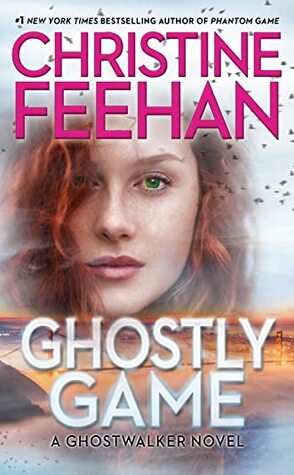Today historical author Deanna Raybournis here talking about writing historical mysteries – and celebrating her latest release, The Dark Inquiry
, available now from Mira.
_________
The historical mystery is a very comfortable place for me. As a reader, I cut my teeth on the books of Agatha Christie and Sir Arthur Conan Doyle—not, as I ought to point out, historical mysteries when they were written; they were perfectly contemporary for their times. But decades later they have taken on the cozy charm of a time long gone. Clothes are different, manners are altered, and daily rituals have changed. How many of us still enjoy tea every afternoon or listen for the dinner gong to beckon us to change into our evening clothes? We can look with fond affection at historical detectives, marveling at how much easier their sleuthing would be if they only had Luminol or cell phone records or even fingerprints on file! The bygone detective must rely upon observation and logic, wit and a keen observation of the human psyche–sometimes centuries before psychology was even invented.
This is a tempting notion for a novelist. The modern crime writer must know far more than Miss Marple or Sherlock Holmes about every conceivable aspect of investigation. Thanks to modern forensics, most average citizens have a knowledge of detection that would have staggered writers even fifty years ago. We watch true crime shows and follow murder trials, sometimes second-guessing the experts themselves and attempting to piece together the story in our own minds. We have all become sleuths after a fashion, and thanks to a few generations who have grown up fully familiar with Freud, we know a great deal more about what makes murderers tick. We throw around phrases like “dysfunction” and “psychopath” and talk a little less about evil—a favorite fall-back of the historical investigator.
Because of this, writing a historical mystery is really a return to a simpler time. An act of violence is perpetrated, usually for very simple reasons. The crime is exposed and investigated; justice is served. There is more of an emphasis on the people than the pathology, and when science does intrude into a historical investigation, there is a whiff of quaintness about the historical detective’s methods. We can admire Poirot’s cleverness at using a lady’s hatbox to help him unravel the writing on a burned piece of paper while traveling on the Orient Express, but we can also feel just a bit smug at knowing we could have solved the case so much faster simply by reviewing the footage from the security cameras had it been a 21st-century crime.
In setting our own novels in the past, we can slip back to a time when motive mattered more than forensics, when an eyewitness rather than a tiny strand of DNA was the most compelling component of a case. By not spending quite so much time and effort on the endless scientific questions, we are freer to explore the people themselves—the victim and the suspects and how their lives overlapped. And in this way, we can move away from the modern how-dunit and back to the subtler and simpler world of the who-dunit.
A sixth-generation native Texan, Deanna Raybourn grew up in San Antonio, where she met her college sweetheart. She married him on her graduation day and went on to teach high school English and history. During summer vacation at the age of twenty-three, she wrote her first novel. After three years as a teacher, Deanna left education to have a baby and pursue writing full-time.
Fourteen years and many, many rejections after her first novel, she signed two three-book deals with MIRA Books.
______________
We have three copies of The Dark Enquiry to giveaway. Leave a comment telling us what you think of historical mysteries and you’ll be entered to win. Contest ends Tuesday July 5 @ 11:59pm. Please note: You must include a valid email address with your comment to be eligible to win. Contest open to all, US or International.
This book is available from Mira. You can buy it here or here in e-format.










This is a terrific series with great characters. Deanna Raybourn really pulls the reader into the milieu of Victorian England. I can’t wait to read The Dark Enquiry.
penfield716@yahoo.com
I do enjoy mysteries set in historical settings. I like that they don’t have our current technology to use as a crutch. They have to be more clever and creative. I think it makes the situations more dangerous and suspenseful too.
user1123 AT comcast DOT net
I love this series, and because of it I have looked at other historical mysteries. I love the sense of a different place and time that comes with these books.
I enjoy historical mysteries. The authorities have to figure out the mystery without the help of technology, therefore they have to out think the criminal.
kissinoak at frontier dot com
Great Post!!
I enjoy historical mysteries because, if the author is doing his/her job, we are back in that time period and have to think in a more logical manner – just like the detective – in order to solve the mystery. No gadgets, just brain power. The Dark Enquiry sounds like a wonderful read.
kacbooks(at)hotmail(dot)com
I’m a huge fan of Deanna Raybourn’s Julia Grey series. I kept “hearing” about it in the blogisphere, so when Amazon was selling the Julia Grey bundle for the kindle at a reasonable price, I coudlnt’ resist. I was immediately hooked. It had a very gothic atmosphere abou it, and the mystery was well done. I’m a romance reader at heart, and I usually like my romance more “earthy”, but I was nevertheless satisfied with the subtle romance in this series.
sotheara_keatATyahooDOTcom
The first mysteries I read were those of Agatha Christie. At each chapter I’d say to my father, “So and so did it.” My father would tell me to wait and see. I was usually wrong, but it fostered my love of mysteries. I’ve been enjoying watching Miss Marple and Hercule Poirot on TV and also watched a documentary about the Orient Express recently. I enjoy the combination of history and the smart decisions plus the intuition used by the detectives. In Miss Marple’s case it’s often plain nosy, but it makes me smile.
shelleymunroATgmailDOTcom
I’ve never thought about it in those terms before, but it’s true, older mysteries have much more of a focus on characters and motivation in order to solve a crime, rather than science. I love the Julia Grey series, I can’t wait to read the next one.
jen at delux dot com
I love a good historical. I cannot recall reading very many historical mysteries; I guess I will have to give this genre a go.
This comment has been removed by the author.
These were the first historical mysteries I have read. I started reading the series after reading a review somewhere. I want to read more along the same line, but I don’t know who to read.
tlwalls@ballstate.bsu.edu
I am looking forward to reading a historical mystery.
Kit3247@aol.com
I’ve always enjoyed mysteries as well as historicals, and it’s always nice when there’s a bit of mystery to be solved in a great historical setting, so I’m all for it.
I’m looking forward to checking out The Dark Enquiry.
Barbed1951 at aol dot com
I do enjoy them and I think part of it is as Deanna pointed out because they are stories that rely people being clever and using what little clues they could uncover.
mce1011 AT aol DOT com
I didn’t answer the question. When you hear the term historical mystery, you think that it might be an uninteresting narrative of past cultures with a thin overlay of mystery. Nothing can be further from the truth. In Deanna Raybourn’s hands, the mystery is front and center and instead of a boring recitation of history, you get an interesting take on a bygone era that’s integrel to the story.
penfield716ATyahooDOTcom
I absolutely adore this series and how it’s developing. I didn’t foresee the two of the developments that took place at the end of ‘Darjeeling’ and am so curious to find out what happens next with the characters, especially Portia.
No surprise that I love historical mysteries apart from this one – the Falco series of Lindsey Davis, the medieval female pathologist series of Ariana Franklin, Amelia Peabody of Elizabeth Peters, St. Cyr of C.S. Harris. It’s all good!
mayamissani AT yahoo DOT ca
Oh, I love love Poirot and Ms Marple 🙂 And as Ms Raybourn said, historical mysteries are return to simpler times when everything revolved around people.
franalokas (at) yahoo (dot) com